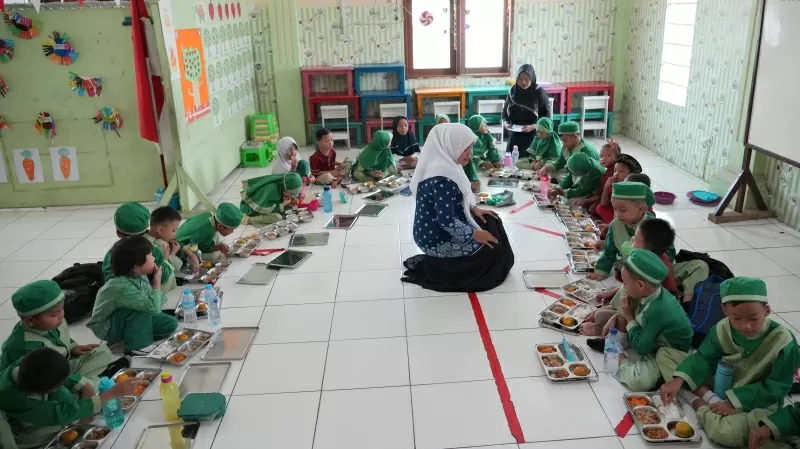Indonesia, the world’s fourth most populous country, has taken a major step towards fighting malnutrition. On Monday, the new government launched an ambitious project to provide nutrition to almost 90 million children and pregnant women, in an effort to improve the health of its citizens. The project is expected to cost US$28 billion through 2029, but some critics are questioning whether it is a sustainable and affordable solution.
The project, called the National Strategy for Food and Nutrition Security, aims to address the high rates of malnutrition in the country. According to the World Health Organization, Indonesia has the sixth highest rate of child stunting in the world, with 30% of children under the age of five suffering from chronic malnutrition.
The new government, led by President Joko Widodo, has made it a priority to improve the health and well-being of its people. The National Strategy for Food and Nutrition Security is seen as a key step towards achieving this goal. The project will be implemented over the next ten years, with a focus on providing nutritious food to children and pregnant women in the country.
The US$28 billion project will include various measures such as increasing access to nutritious food, promoting breastfeeding, improving sanitation and hygiene, and providing supplements and fortified food to vulnerable groups. The government also plans to invest in education and awareness programs to educate the public about the importance of good nutrition.
The launch of this project has been welcomed by many experts and organizations working in the field of nutrition. They believe that this initiative has the potential to significantly improve the health of Indonesia’s population, especially its children. For years, Indonesia has been struggling with high rates of malnutrition, which has led to serious health issues and hindered the country’s economic development.
The National Strategy for Food and Nutrition Security has set ambitious targets, including reducing the prevalence of stunting by 25% and reducing the prevalence of wasting, or acute malnutrition, by 10% by 2030. While some may question the feasibility of achieving these targets, it is crucial for the government to take bold steps towards addressing this pressing issue.
However, there are also some concerns surrounding the affordability of the project. The US$28 billion budget for the next ten years is a significant amount, and some critics have raised questions about the government’s ability to sustain such a costly project. They argue that the country’s economy is already facing challenges and that the funds allocated for this project could be better utilized in other areas.
In response to these concerns, the government has assured that it has carefully planned and budgeted for the project. The funds will be allocated from various sources, including government budgets, international development aid, and private sector investments. The government is also exploring partnerships with international organizations and donors to cover a portion of the costs.
Despite these concerns, the launch of this project marks a significant milestone in Indonesia’s efforts to combat malnutrition. It is a clear indication of the government’s commitment to improving the health and well-being of its people, especially the most vulnerable groups. This project has the potential to bring about long-term positive impacts on the country’s economy and social development.
Moreover, the project also presents opportunities for growth and development in the agriculture and food industries. With increased demand for nutritious food, there will be a need for increased production, which could lead to job creation and economic growth in these sectors.
In conclusion, Indonesia’s new government has taken a bold and crucial step towards fighting malnutrition in the country. The launch of the National Strategy for Food and Nutrition Security is a positive and much-needed initiative that has the potential to improve the lives of millions of children and pregnant women. While there may be some concerns about the affordability of the project, it is essential for the government to prioritize the health and well-being of its citizens. With careful planning and execution, this project can prove to be a game-changer in Indonesia’s fight against malnutrition.

